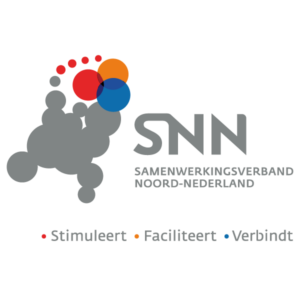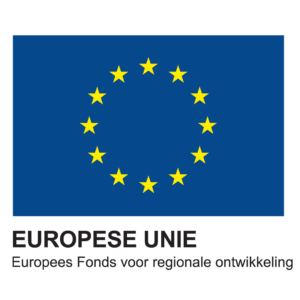The GDMIEN-NL project is co-funded by

The high (replacement) demand for shortsea ships combined with the energy transition offers the Northern Netherlands maritime sector huge development opportunities. The strong need for emission-free shipping provides great opportunities to strengthen the Northern Netherlands’ innovative maritime ‘ecosystem’ by developing emission-reducing technologies. Combined with more efficient shipbuilding processes through digitalisation and robotisation the Northern Netherlands maritime industry can lead the way in the transition to large-scale zero-emission shipping and digital shipbuilding.
Conoship’s Director of Development, Guus van der Bles, recently explained on June 13th the ‘Green and Digital Maritime Innovation Ecosystem Northern Netherlands (GDMIEN-NL) project and recent developments to KNVTS members in his lecture. After the lecture of Guus, Conoship’s specialist in Ship-based Carbon Capture, Joan van den Akker explained in detail the challenges and opportunities of this innovative technology.
The start of project Green and Digital Maritime Innovation Ecosystem Northern Netherlands
Last year the maritime sector in the Northern Netherlands pooled its knowledge and expertise to realize the technology needed for ‘green’ shipping and digitalized shipbuilding. This “Green Maritime Coalition”, was initiated by the Groninger Maritime Board and Conoship International. This GDMIEN-NL project will create an ecosystem for the Green Maritime Coalition, which is planning to lead the way in the transition to large-scale zero-emission shipping and digital shipbuilding.
The project is supported by the European Fund for Regional Development (EFRO) of the European Union and on Wednesday 13 July 2022, deputy of the Province of Groningen IJzebrand Rijzebol handed over a cheque to Conoship International, the coordinator of this innovation project. The consortium of 21 technology developers, shipping companies, shipyards, suppliers, laboratories, universities of applied sciences, and the University of Groningen received the European grant (EFRO) to support these developments. (read the press release)
In the lecture, Guus explained that this project creates the innovation ecosystem from which new cooperation structures are developed to investigate four innovative technologies for the transition from fossil to renewable energy in shipping and two digital shipbuilding process applications:
- Full electric propulsion on renewable Redox Flow battery technology
- 30 Meter VentiFoils XL, wind propulsion units for ships
- Sailing on hydrogen (H2)by ‘marinising’ fuel cells of 500 – 3000 kW
- Ship-based Carbon Capture and liquefaction installations
- Centralized digitized production of steel panels and sub-sections for shipyards in a Shared Facility
- FieldLab Digital Shipbuilding 0, where new production techniques for shipbuilding can be developed and made ready for production
Van der Bles concluded the lecture for KNVTS with follow-up steps for developing, securing, and expanding the innovation ecosystem. For each technology, partners in the value chain cooperate in developing a roadmap for 2023-2030 and beyond. The roadmaps will be integrated in the Green Maritime Coalition Strategic Plan 2023-2030.
Wrapping up, Guus once again told the audience: “Cooperation between technology developers, builders, shipping companies, knowledge institutes, educational institutes, and governments is essential to realize these developments. If you are interested to cooperate in this green maritime coalition, we invite you to join us.”
The GDMIEN-NL project is co-funded by





